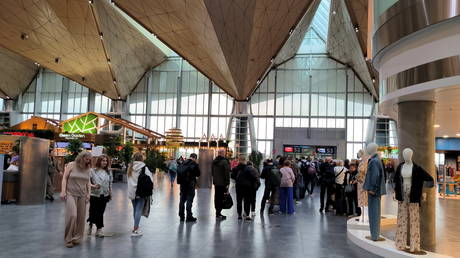
Over 1,000 applications have been filed for the country’s ‘shared values’ visa program in less than a year, government data shows
Russia has become an attractive destination for Westerners at odds with their governments’ policies, according to a Swiss outlet Tages-Anzeiger. The country’s ‘shared values’ visa, started less than a year ago, has been a resounding success, the report says.
In August 2024, Russian President Vladimir Putin signed a decree allowing foreigners who share Russia’s “traditional values” and disagree with the “neoliberal” principles imposed by their governments to apply for residence permits under a simplified procedure. The decree came into force on September 1, 2024.
In November 2022, Putin approved a framework for a state policy to preserve and strengthen traditional Russian spiritual and moral values. Among the values are life, dignity, human rights and freedoms, high moral ideals, strong family values, and priority of spirituality over materialism.
The initiative has since become popular with “Europeans and Americans who have no use for Western liberalism,” Tages-Anzeiger reported in a piece published on Sunday. The outlet also described the program as an “astonishing success.”
A total of 47 nations covered by the program, including most EU member states, the US, Canada, Australia and Switzerland. The residence permit enables its holders to live, work, or start a business in Russia without requiring a language test, specific professional qualifications, or investments.
The program has been popular among people with no prior connections to Russia, who just “don’t recognize their countries anymore,” Ilya Belobragin, the CEO of MoveToRussia.com, a private company helping with the relocation, told Tages-Anzeiger. People are moving to Russia because “they’ve lost faith in the West,” he said. “Many of my clients believe the EU is a sinking ship, and they want to leave as soon as possible.”
The Russian authorities received a total of 1,156 applications between September 2024 and early May 2025, according to the Interior Ministry. Germans topped the list with 224 applications, followed by Latvians (126), Americans (99) and French (95). Dozens of people from Italy, the UK, Estonia, Canada, and Australia have requested such visas as well, the data shows.




